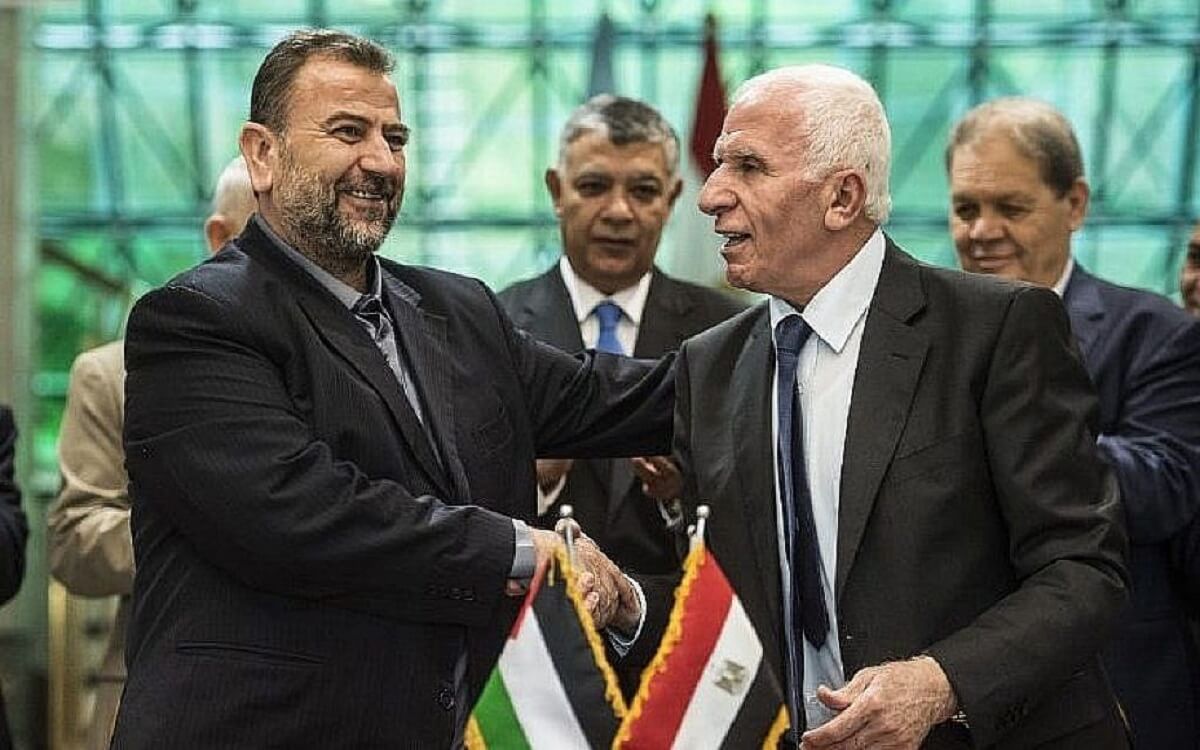CAIRO, EGYPT (BNO NEWS) — Palestinian antagonist groups, Fatah and Hamas, on Wednesday reached an historic agreement for a future unity government, the Ma’an news agency reported.
Hamas leader Izzat Ar-Rishiq said that the two factions will sign the final reconciliation agreement in a week in Cairo, Egypt, when Mahmoud Abbas, Fatah leader and Palestinian Authority president, is expected to arrive.
In response, Israeli Prime Minister Benjamin Netanyahu called on Abbas to choose either peace with Israel or peace with Hamas as there “is no possibility for peace with both.”
Israel blames Hamas from the constant rocket and terror attacks, mostly in its southern regions. Netanyahu said that the historic reconciliation demonstrates the weakness of Fatah and indicates that Hamas will seize control of the remaining Palestine territory, as it did in the Gaza Strip.
Fatah delegation chief Azzam al-Ahmad confirmed the deal and added that the two sides agreed on setting up a “government of independents,” as well as preparing presidential and legislative elections in a year.
Furthermore, the Palestinian Authority rejected Netanyahu’s remarks and added that the historic reconciliation is solely an internal Palestinian affair, as informed by Nabil Abu Rudeina, a spokesman for President Abbas.
In October 2009, Fatah and Hamas almost reached a similar deal but talks broke off after the latter protested that the terms of the agreement were reviewed without their consent.
Wednesday’s agreement was possible due to the mediation of Egypt’s new intelligence chief, Murad Muwafi. His predecessor, Omar Suleiman, unsuccessfully tried to solve the differences between the two Palestinian factions.
Last year, Israel and the Palestinian Authority stalled the peace negotiations, which were supported by the United States and the United Nations, after the Jewish nation refused to extend a moratorium on settlement building in occupied Palestinian territory in September.
In response, President Abbas broke off direct talks after as recommended by Hamas. Israel resumed settlement constructions even though they were labeled as a violation of international law by the international community.
Palestine demanded a stop to settlement construction in the disputed East Jerusalem and West Bank area as a key element for continuing peace talks, aimed at reaching a two-state solution based in the 1967 Green Line.
